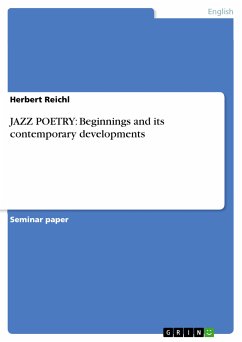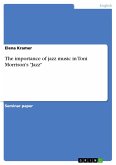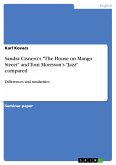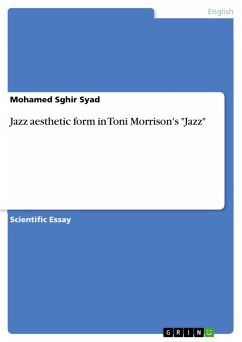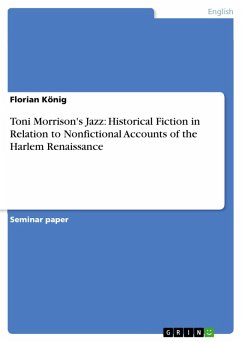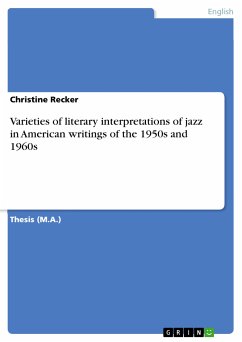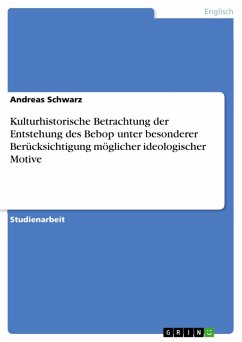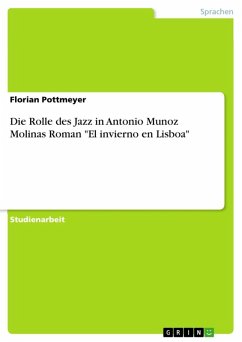Seminar paper from the year 2001 in the subject English Language and Literature Studies - Culture and Applied Geography, grade: very good, University of Salzburg (Anglistics/American Studies), course: Jazz and American Popular Music, language: English, abstract: To many people, the relationship between the terms "jazz" on the one hand and "poetry" on the other hand might be anything else but obvious. On the one hand, jazz, one may argue, is a type of music, most of the time associated with black musicians, used for relaxation purposes or which is suitable for a nice evening out listening to a concert. The term poetry, on the other hand, is mainly associated with well-known poets like W.Shakespeare, W.Wordsworth, or W.B.Yeats. Everybody had to sit in school, learn poems by heart and had to recite them. Furthermore in poetry, concepts of rhymes, stanzas, rhythm, or metre have a major importance. Most of the time, poems have to be interpreted to fully get their meaning, which as well might be an obstacle to many readers to enjoy them, for inexplicable reasons. As mentioned above, poetry is closely linked to terms like rhythm and rhyme, and so is music. Almost any pop-song which has been composed in the last decades has a certain structure, a meaning when it has been interpreted, their lines rhyme and they are sung in a certain rhythm by the artists. We can observe the same phenomenon in jazz, where the artists sing or play on stage, they want to make their message clear to the audience that dances according to the rhythm and listens to the lyrics of the song. Thus, one might argue, there is a more than close and obvious link between jazz and poetry. Brian Dorsey, for example, states that "poetry and music are two expressive idioms that naturally complement each other"(ii)1. Many jazz-poets have set their lines to jazz, or even performed their po-ems with musical accompaniment. In this seminar-paper, I will deal with the link between jazz and poetry. At the beginning of this piece, I will define the concept of jazz-poetry, which has been a term in English Literary Criticism for many decades now. Furthermore, the paper will also deal with contemporary jazz-poetry. Starting from dialect poetry (Dunbar), moving on to one of its main and most important representatives, Langston Hughes, this paper then will compare jazz-poetry at the turn of the last century to contemporary jazz-poetry, interestingly enough at the turn of a new millennium. The comparison will not only focus on sociocultural backgrounds influencing music and poetry at specific times, but will also deal with the poems' topics, how poems are structured, and their, if there are any, peculiarities, differences or similarities.
Dieser Download kann aus rechtlichen Gründen nur mit Rechnungsadresse in A, B, BG, CY, CZ, D, DK, EW, E, FIN, F, GR, HR, H, IRL, I, LT, L, LR, M, NL, PL, P, R, S, SLO, SK ausgeliefert werden.

